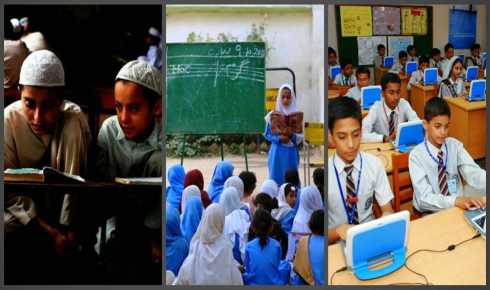
Single national curriculum to end social, economic disparities
Taj Nabi Khan
Islamabad: Over the years, the class-based education system and multi-layered curriculum has widened polarization and created more social and economic disparities among different strata of the society leading to lack of tolerance and acceptability towards each other — those belonging to or graduating from somewhat ‘different systems of education’.
Nelson Mandela said, “Education is the most powerful weapon which you can use to change the world.” And it is this weapon that socially and economically empowers citizens and nations locally and globally to compete with the modern world in terms of economy and technology.
But, unfortunately, the contrasting worldviews amongst the students and graduates from different streams of education has often seen to become a bone of contention in practical life. Thus the class-based education system has become more ‘a dividing force than binding one’.
Therefore, a unified system of education having Single National Curriculum (SNC) is of vital importance for social cohesion, national integration and nation building.

The same curriculum, which has been approved and announced for all enrolled students from grade I to V in all three layers of education systems: elite private schools, pubic school and religious seminaries would make the students able to live more in harmony with other citizens as adult graduates due to greater level of commonalities and shared background.
Curriculum consists of almost everything that helps in promoting the learners abilities in terms of intellectual, spiritual, moral, aesthetic, emotional, social and physical development. It also includes co-curricular and extracurricular activities with approaches to teaching, learning, and assessment etc.
The curriculum also takes into account aims, objectives, scope, learning outcomes, and sequence of contents, learning activities, method of delivery in the classroom, evaluation and assessment techniques etc.
The new education policy of the incumbent government based on Single National Curriculum (SNC) could help in putting an end to the education apartheid in the country.
The reforms in the existing system of education as per the international standards in consultation with the education experts after taking the relevant stakeholders on board are expected to equip students with the required knowledge, skills, vision, and disposition to face the global challenges.
Former Chairman Pakistan Madrassah Education Board, Dr. Aamir Tuaseem has said that as far as national cohesion is concerned, the same curriculum for all kinds of education system in the country is of great significance. He said, “The curriculum would bring the unprivileged and ignored segments of the society into main stream of education by putting an end to their deprivations in terms of offering them equal opportunities in life.”
The methodology of teaching should also be enhanced for imparting quality education to students, he added.
The facility of SNC would provide a level-playing field to all students.
The same courses of study at primary level are expected to bring the same learning outcomes with the vision to transform the younger generation to a unified nation.
According to the book of national curriculum framework, Pakistan, the one system of education for all in terms of curriculum, medium of instruction and common platform of assessment has taken all the key considerations such as ideological, academic, socio-cultural, psychological, technological, philosophical, historical and economic concerns to achieve the national vision and goals. Shaukat Ali, an Islamabad-based educationist and PhD scholar while talking to the agency has said, “The dream of a single national curriculum is a pressing need for a large community of the country. It is not less than giving voice to unvoiced people.”
From day first, the government has started working on education policy framework with four key reforms: putting all the out-of-school children in schools as required by Article 25 A-of the Constitution; eliminating apartheid in education by introducing a uniform curriculum; enhancing the quality of education; and emphasizing technical and vocational education, he added. The educationist said that a large number of the subalterns were being streamlined and given a chance to compete in the society.
He said that it was really a positive step to own the less privileged students. “There might be several weaknesses but the shortcomings must not be made a hurdle in the unification of the society academically”, he added.
